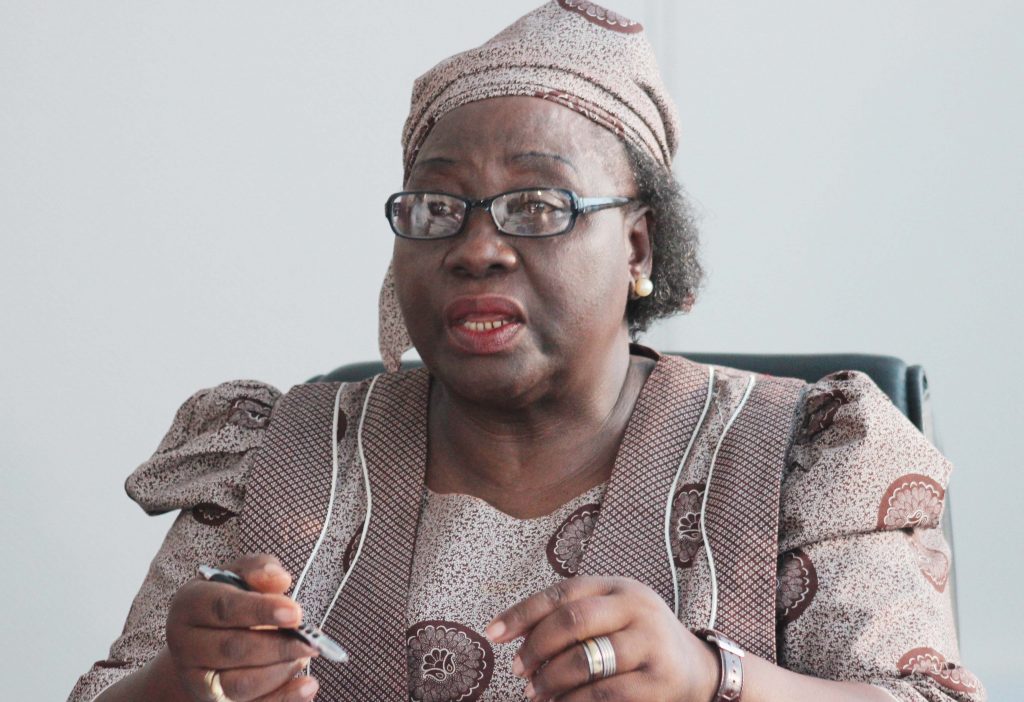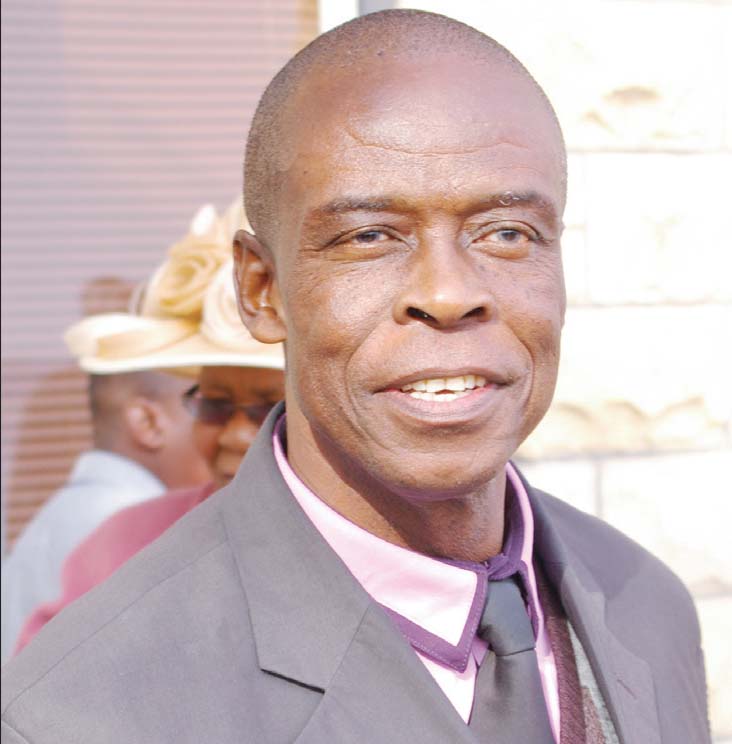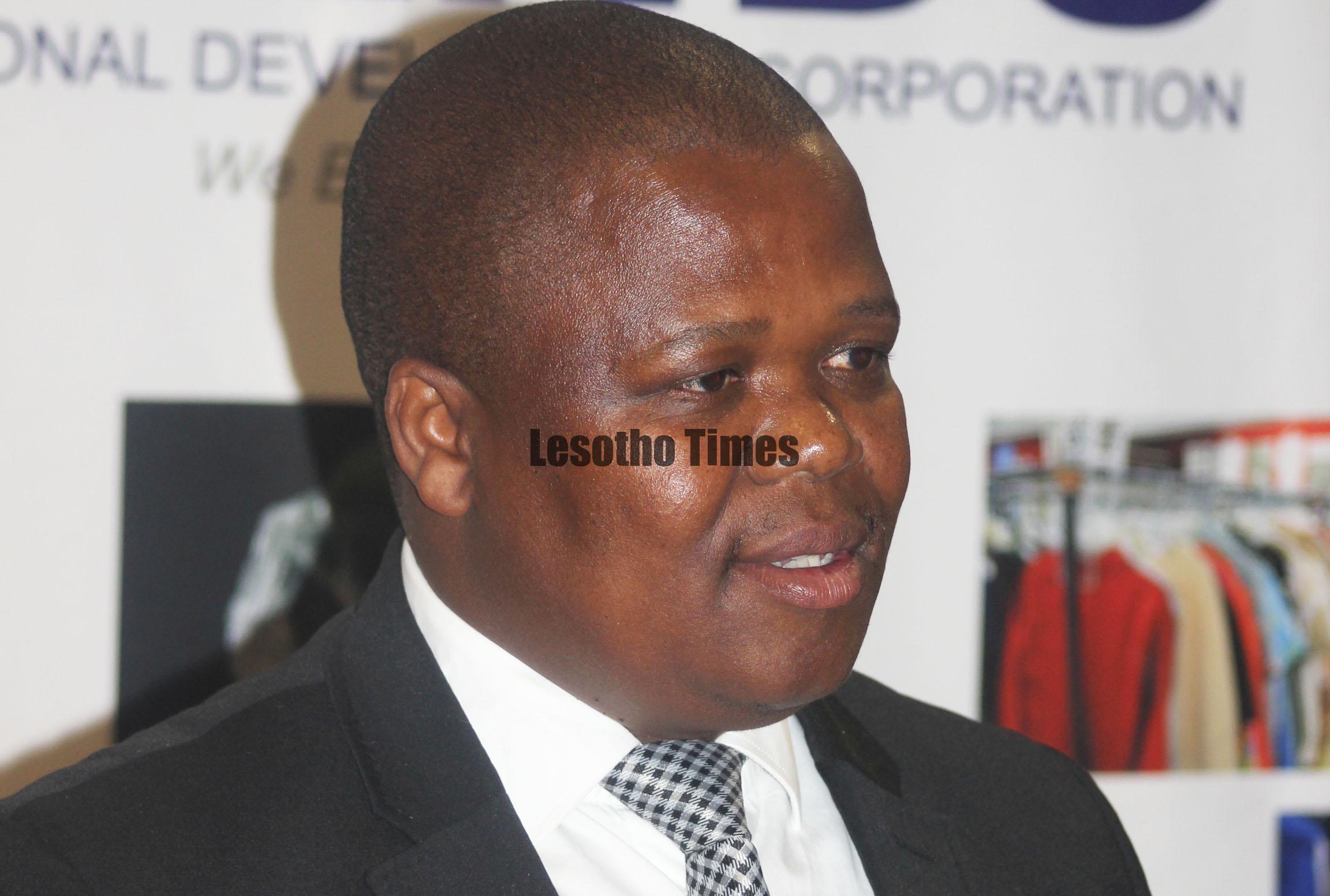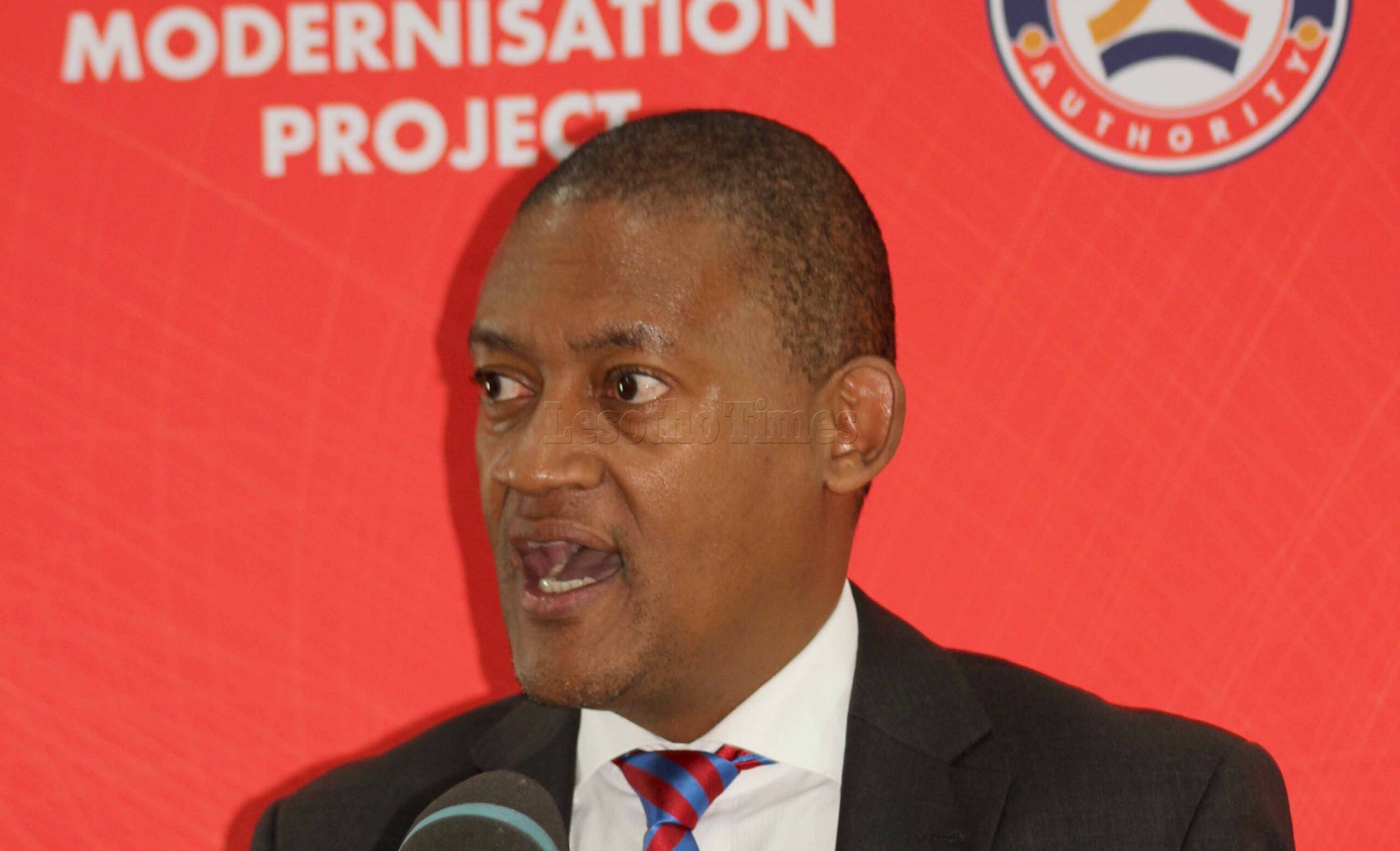
THE Independent Electoral Commission (IEC) announced the election timetable on Monday this week ahead of the snap general elections scheduled for 3 June 2017.
The elections, as professed by IEC Director of Elections Dr Letholetseng Ntsike and her deputy Mphasa Mokhochane, were the “first of their kind” in Lesotho following the passing of a no-confidence vote on the Prime Minister Pakalitha Mosisili-led seven-party coalition government.
King Letsie III has since dissolved parliament and proclaimed the election date within 90 days as dictated by the constitution.
The IEC has indicated they are faced with a monumental challenge in preparing for the elections within a constrained time frame. According to the IEC’s election timetable, the election period began on Monday this week.
In this interview, IEC Commissioner, Advocate ’Mamosebi Pholo, speaks with the Lesotho Times reporter, Lekhetho Ntsukunyane, about the electoral body’s preparations for polls and related issues.
LT: How will you be able to make adequate preparations for the coming snap elections given the short period at your disposal?
Pholo: For us to be able to perform well under the situation, which we cannot avoid, we shall have to embark on extraordinary measures which include gathering additional resources and personnel. This means that where, in ordinary elections, we used to hire 2 000 additional casual employees, we will now have to double that number to 4 000 or even 5 000 people to perform in the same way as we did in the past elections. This will enable us to beat the time constraint factor, because time is very limited. We hope to achieve the same results as in the past elections, where we did well through this strategy.
LT: Did you include this arrangement in the M248 million budget proposal you submitted to government?
Pholo: Definitely. There is no other way to hold the elections properly. It is imperative to adequately budget for these elections. Like you observed, these snap elections are the first of their kind. For instance, we had snap elections in 2015, but unlike the upcoming ones, we had two months before the start of the election period to prepare. But with the coming snap elections, immediately after dissolution of parliament on 6 March 2017, the election period had to soon follow.
LT: Ordinarily, the IEC engages in preparations prior to the electoral period, such as the establishment of the IEC tribunal among others. What is going to happen with such issues now that you no longer have any time to prepare for anything outside the election period?
Pholo: We already have the tribunal team that we worked hand-in-hand with since the previous elections. Those people are available and can come anytime we call them for elections. As for the issue of updating the voters roll, we are supposed to continuously conduct that process. However, at the time we are sure we are heading for elections we normally intensify the cleaning up process. We do this by employing people who visit the villages and conduct a door-to-door verification process to identify how many people should be struck off from the voters’ rolls because they have passed away. Unfortunately, we don’t have time to do that for the coming snap elections.
LT: With the snap elections looming, we have seen many parties mushrooming and registering with the IEC. How has this affected your proposed election budget and other processes?
Pholo: The elections budget is not affected by the number of parties registered with the IEC. It is a fixed budget. In other words, if parties are many, they get a small share of that amount. But when they are fewer, they will get a bigger share. From the M248 million budget proposal we have put before the government, we are only going to deduct a certain percentage to be allocated to the parties, but the amount is not dependent on the number of the parties. With regard to how the continuous party registration affects our processes ahead of elections, I would simply say the registration is temporarily stopped at the time of closure of submissions for party candidates within the election period. This is done so that we can be able to prepare for the ballot paper. We have already proposed a waiver to procure, though a selective tendering process, a credible company that will manufacture our ballot paper. Because of time constraints, we have proposed that we will select such a company from a list of companies that have previously provided us with ballot papers. We don’t have time for an open tender. Basically, the issue of party registrations doesn’t really affect the IEC processes ahead of elections.
LT: There is a public concern that we have too many parties registering with IEC in the country. Some people opined this due to “lucrative” benefits that come in the form of party funding, campaign funding and equity monies the IEC offer for them. Is this also an issue with the IEC?
Pholo: I cannot confirm whether the issue of many parties registering with the IEC is really a concern for the commission. However, this issue should be a concern for Basotho in general. The fact of the matter is that the constitution provides people with freedom of association. In other words, where people find that of the existing parties there is none that suits them, they are free to establish their own party. As the IEC, we cannot control that. Maybe it’s high time we revisit our laws. We should find out whether it is still adequate and relevant today to say the requirement for people to register a party is only 500 members; is it perhaps still relevant to say new parties should only pay M1 000 to register. Isn’t it time we revise the laws and say the 500 members should come at least from each of the 40 electoral constituencies, which is half of the 80 constituencies we have, as requirement for registration. We are not saying people should not form parties, but at least there should be a reasonable control measure.
For instance, in other countries the issue of a quota per parliament seat is considered to determine registration of new parties. For Lesotho, the quota for one parliament seat as per the 2015 elections was around 4 000 votes per seat. So in line with that, we may change the electoral law to say for one new party to register with the IEC, the requirement should be a minimum of 4 000 signatures from its members, so that at least we know that such a party can possibly qualify for a seat in parliament. Not only that, but we need to ensure that the new parties’ support base is spread across the country, at least by having member signatures from 40 different constituencies and above. This could be a determining factor whether or not the parties are registering just to receive money.
At the moment, I cannot straightaway confirm whether we have so many parties because of party funding, campaign funding and equity monies that we offer them. What I know is that we don’t offer party funding to every party, but only parties in the National Assembly receive such funding. The money is allocated to each party represented in parliament depending on the number of seats it has. If your party has more seats, you are likely to get more money than a party with fewer seats; regardless of whether the seats are proportional representation or constituency-based. The understanding is that parties in parliament should have offices they run in constituencies. Conversely, campaign funding could attract people to form parties because it is given to every party registered with the IEC. The money is allocated to all parties together with an additional equity money equal for all parties. Equity is calculated at 20 percent of the total campaign funding given to all the parties. After calculating the percentage, the remaining 80 percent is allocated to the parties depending on the number votes each party secured in the last elections. But for new parties that have not participated in any elections, their campaign funding is dependent on the 500 member signatures they provided as they registered with the IEC.
LT: How accountable are these parties to the IEC?
Pholo: To be honest, only a few parties are accountable for the money. Most of them do so very hesitantly. In most cases, we force them to account. Most often, smaller parties are able to easily account for the money because they receive relatively little. But for big parties, it is a challenge for them to account for the large sums they receive. Some parties receive more than M1 million and they have to account for each cent. In some instances, the IEC comes in and assists those parties to be able to account for the money properly.
LT: When are the parties expected to have fully accounted for the monies? Is there a timeframe?
Pholo: They have to account for the money within a timeframe of six months after elections. That is the expectation. But that rarely happens because, even as we speak, there are parties that have not accounted for the money they were given ahead of the 2015 elections. Some parties fail to even pay for their party agents.
LT: If I may take you back a little, you said you intend to employ more casual staff for the elections. How are you going to find 5 000 people within such a short space of time?
Pholo: It may seem like these people are many, but once we divide and deploy them into the 80 electoral constituencies throughout the country, it is a fairly reasonable number. Again, they also going to be divided into many positions that we need during the election period. Also the issue of recruiting them is not a difficult task because a lot of qualified people in the country don’t have jobs. In fact, if I can show you volumes of files containing hundreds of applicants we have, you will realise that we are recruiting a very small number compared to scores of qualified applicants we have. The only difficulty we may encounter is in employing people who have no previous experience working with the IEC on elections because we don’t have time to train them. We are actually reducing training days. Where we used to have seven days to train our recruits, we will now reduce that to four days. Ordinarily, we recruit and train them long before the electoral period.
LT: The other important issue ahead of elections relates to voter education. Do you have time to conduct it?
Pholo: We are still going to conduct voter education as we have always done ahead of the previous elections. Fortunately, with voter education it continues to be conducted until the last day before election day.
LT: Following your M248 million budget proposal to government, it is understood that the government may soon allocate part of the money so that the IEC can be able to start with initial processes including procurement of resources and recruitment of staff. Has the government allotted some money as we speak, especially because we are already in the electoral period?
Pholo: Parliament was only dissolved on 6 March 2017. And following that, we only received a proclamation formally informing the IEC to prepare for elections on Friday 10 March 2017. So it was only on Monday this week that we were able to submit our budget following this sequence of events. Therefore, it cannot be our expectation that the government would have already given us any money yet. But probably during the course of the week we may get an update. Nonetheless, the IEC has already started deploying staff throughout the constituencies. The government, through our Minister of Law and Constitutional Affairs (Mootsi Lehata), has affirmed we will get the money.
LT: How can you assure the nation that the coming snap elections will be conducted fairly by the IEC?
Pholo: The IEC has proved to have expertise in conducting elections. The hiccups that we may have now due to time constraints cannot necessarily remove the expertise we have in conducting the election processes. All I am saying is that for administration purposes, the IEC is always ready to administer elections. That’s our main mandate. We believe that if we can get resources on time, things will still go well. It is even regionally known by the Southern African Development Community (SADC) member states that IEC-Lesotho has the most expertise in conducting elections because no other country goes for elections more frequently than us. That is a given.








